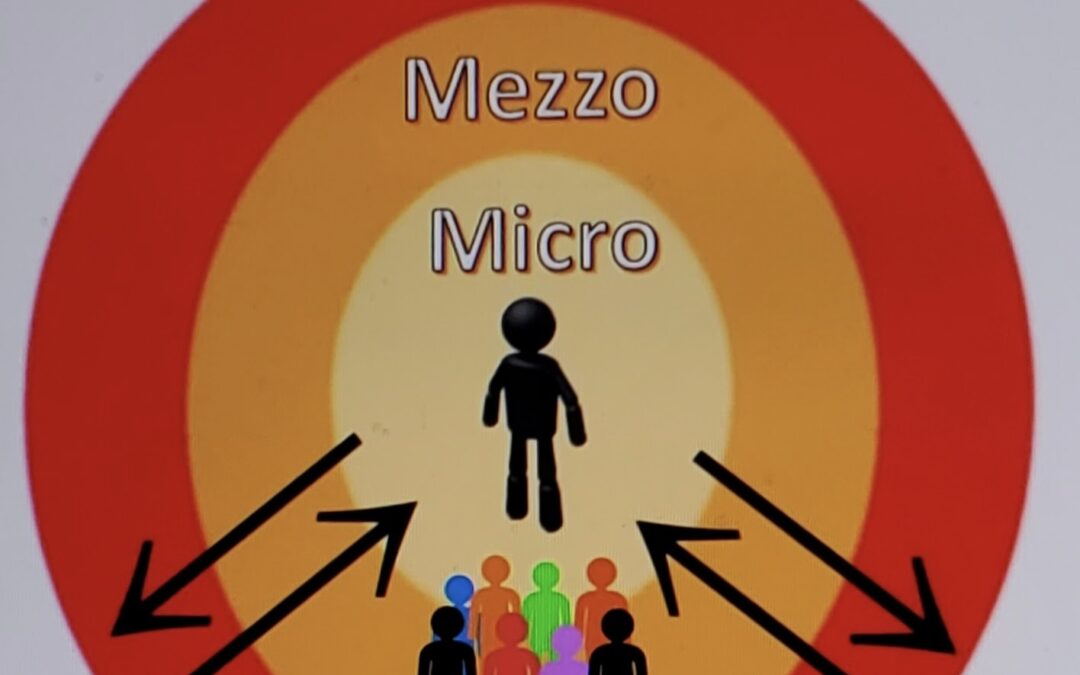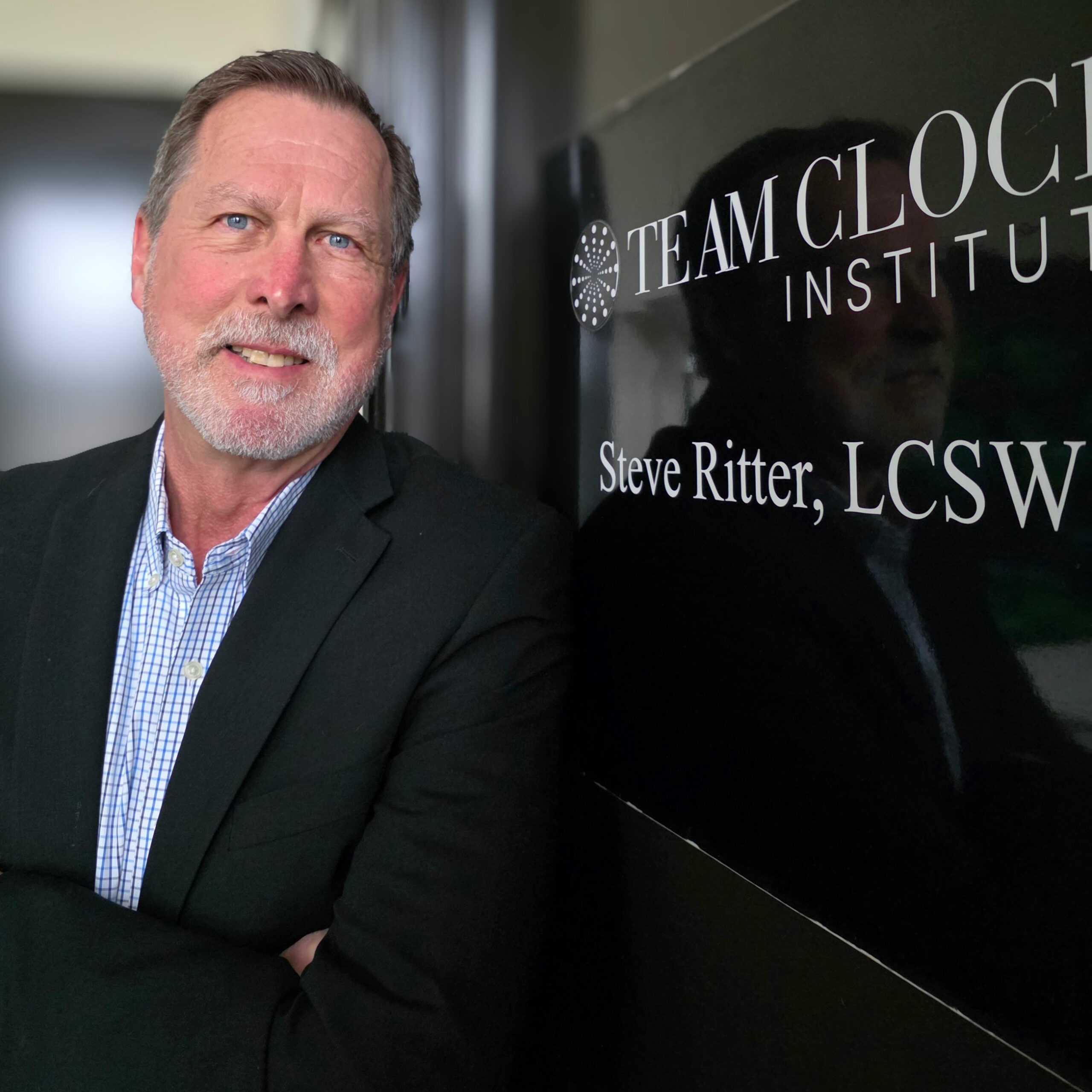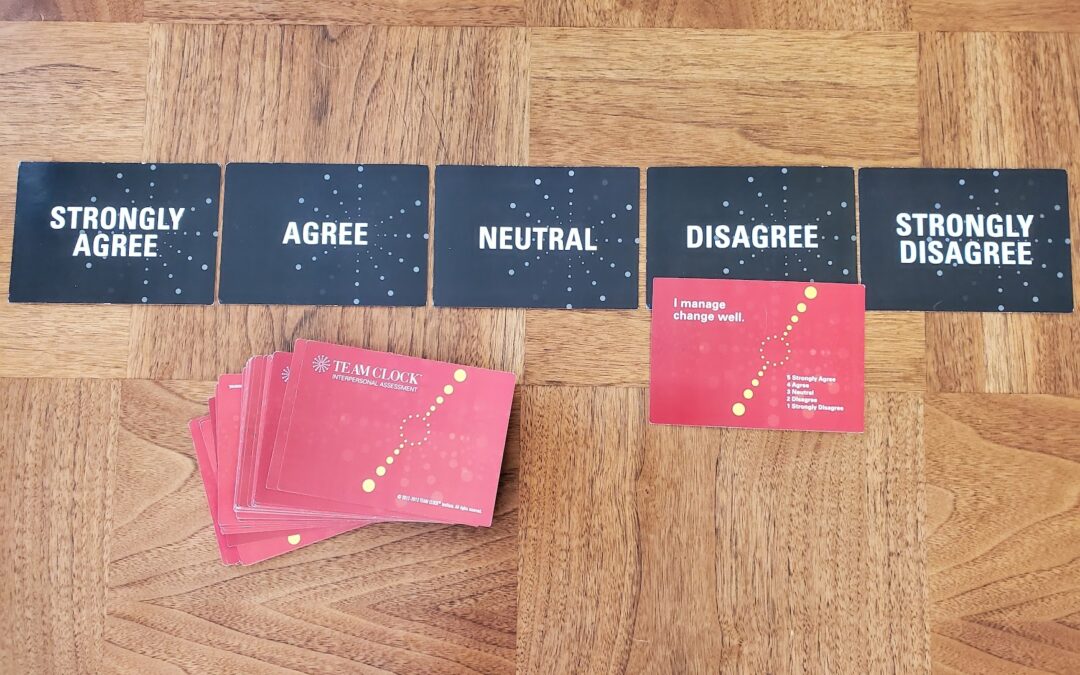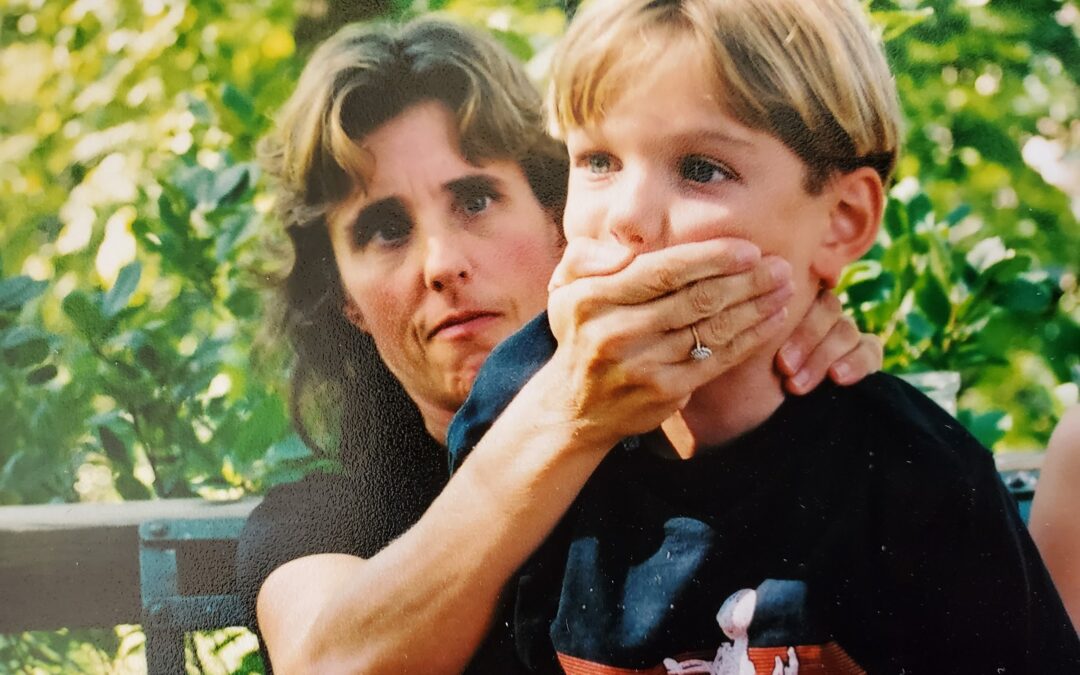
Macro, Mezzo, and Micro Wellness
It would be a mistake to view your work team, your closest interpersonal relationship, and your own growth and development as separate experiences. You are at the center of each of these universes and uniquely drive the wellness and vibe of each one. Your strengths dictate how well you interact with the environment (micro), your friends and family (mezzo), and your workplace culture (macro). Unfortunately (or fortunately), your personality glitches, poor coping skills under stress, and unresolved psychological issues have plenty of impact, too.
The reason this might be fortunate is because the same arrow points to the same opportunity within all your walks of life. If you don’t play nice in the sandbox at work, you probably don’t at home either. If you struggle with social anxiety, you probably battle stress demons personally, as well. If you are struggling to find direction in life, it’s pretty likely that your career path is not perfectly aligned with your values. Our strengths and struggles both play out wherever and however we spend our waking hours (probably our sleeping hours, too).
The opportunity is to find the commonalities in all three venues, micro, mezzo, and macro. Ask the same question in three different phrasings. Most likely, all three answers will be the same. If they are, it may be time to address the issue that seems to have become pervasive. Life is short. Why not now? Does it hurt enough yet?
Here are some examples of questions that might unveil growth opportunities (and perhaps lead to a better night’s sleep):
You tolerate disrespect.
- Micro: Am I neglecting my health and wellness in any way?
- Mezzo: Do I allow others to say or do hurtful things to me?
- Macro: Are words and actions that could undermine our team culture tolerated?
The discomfort of conflict leads you to not stand up for yourself.
- Micro: Does life seem to go better when I avoid confrontation?
- Mezzo: Do we take time to process the changes that unfold in our relationship?
- Macro: Does my team work best when conflict is avoided?
You struggle with accountability.
- Micro: Can I be trusted to follow through with my commitments?
- Mezzo: Are expectations and responsibilities clear in our partnership?
- Macro: Does my team have a clear understanding of our collective roles?
You fear the vulnerability of closeness.
- Micro: Do I feel close to those in my inner circle?
- Mezzo: Is our connection growing closer or more distant?
- Macro: Do I have trusted colleagues on my team?
You settle for ‘good enough’ instead of trying new things.
- Micro: Do I hesitate to stretch myself and try new things?
- Mezzo: Do we support each other’s growth?
- Macro: Is creativity encouraged or do we tend to stick to what’s worked in the past?
You find it difficult to bounce back after a disappointment.
- Micro: Am I able to move forward following a setback?
- Mezzo: Are we able to see the opportunities that arise from change?
- Macro: Does our team have trouble getting back on track following a loss?
It is the rare human who is consistently free of struggle. Whether the pain manifests itself at work, home, or in exchanges with friends and/or lovers is merely symptom identification. The problem that generates the system affects all three, whether or not it’s being telegraphed.
That’s the good news. If you fix it in one place, the other locales enjoy the benefit. Both pain and pleasure are shared experiences and are wildly contagious. Your mirror, friends, and colleagues will thank you. They might not understand why things with you are better, but everyone, everywhere, will feel the difference.

About the Author
Steve Ritter, LCSW is the Founder and Executive Director of Elmhurst Counseling. He has served as a teacher, author, consultant, human resources director, health care administrator, and licensed clinical social worker since 1977. A fellow of the American College of Healthcare Executives, Steve has provided coaching, therapy and team development services to thriving schools, businesses and organizations.




